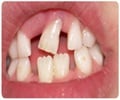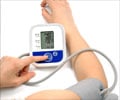A positive association is identified between tooth loss and hypertension risk among postmenopausal women.

‘Older postmenopausal women who are losing their teeth may represent a group with higher risk for developing hypertension.’





The study observed a positive association between tooth loss and hypertension risk among postmenopausal women. Specifically, these women had approximately 20% higher risk of developing hypertension during follow-up compared to other women. The association was stronger among younger women and those with lower BMI. There are several possible reasons for the observed association. One possible explanation is that as people lose teeth, they may change their diets to softer and more processed foods. These changes in dietary patterns could be associated with higher risk of hypertension. There was no association found between periodontal disease and hypertension.
As such, the researchers involved in the study believe that improved dental hygiene among those at risk for tooth loss as well as preventive measures such as closer blood pressure monitoring, dietary modification, physical activity, and weight loss may reduce the risk of hypertension. The findings also suggest that tooth loss may serve as a clinical warning sign for increased hypertension risk.
"These findings suggest tooth loss may be an important factor in the development of hypertension," said the paper's senior author, Jean Wactawski-Wende. "Further research may help us to determine the underlying mechanisms by which these two common diseases are associated."
Source-Eurekalert















